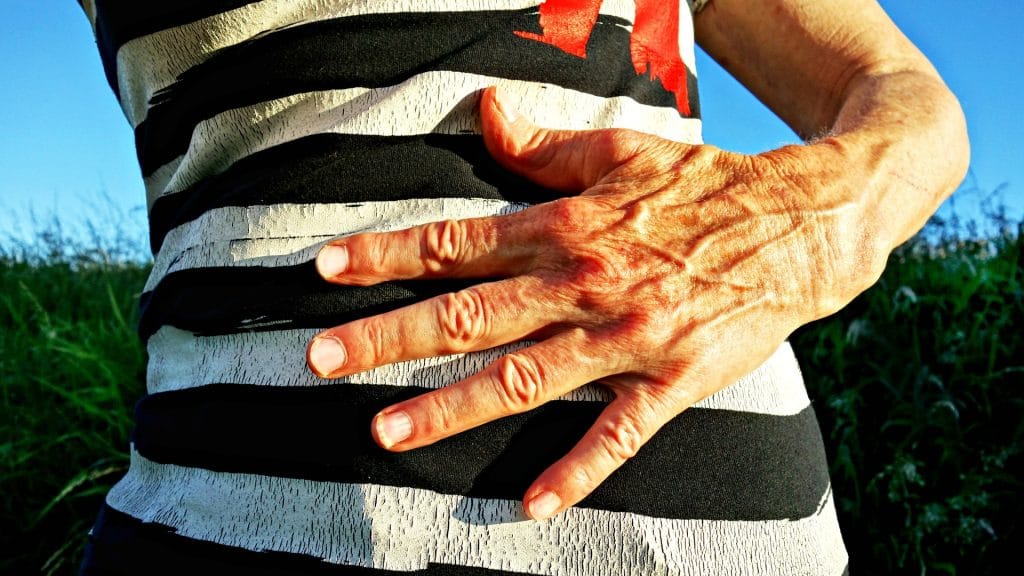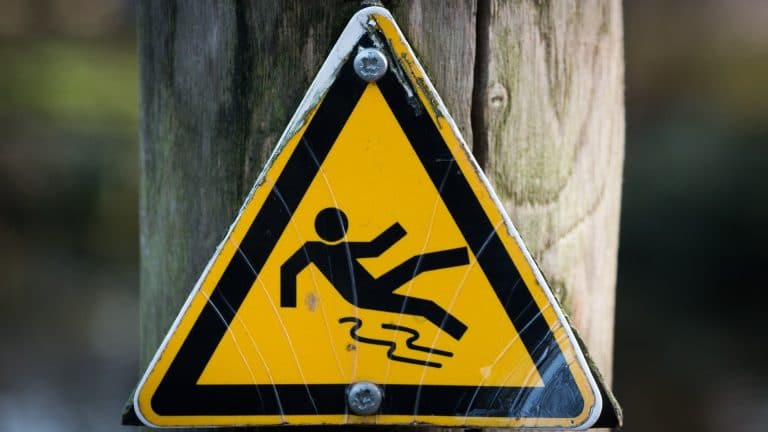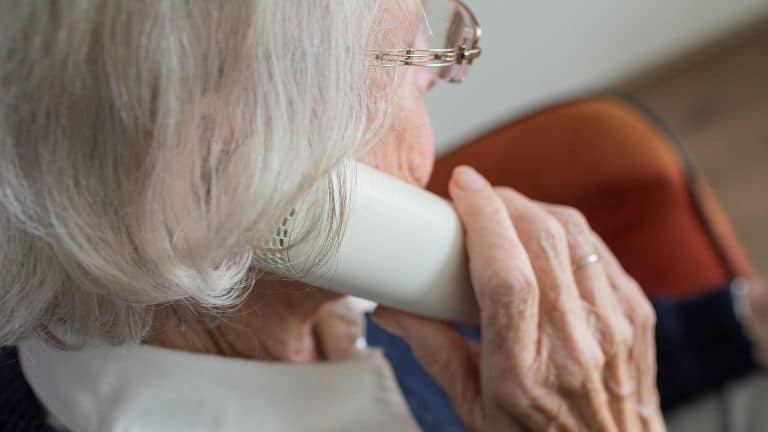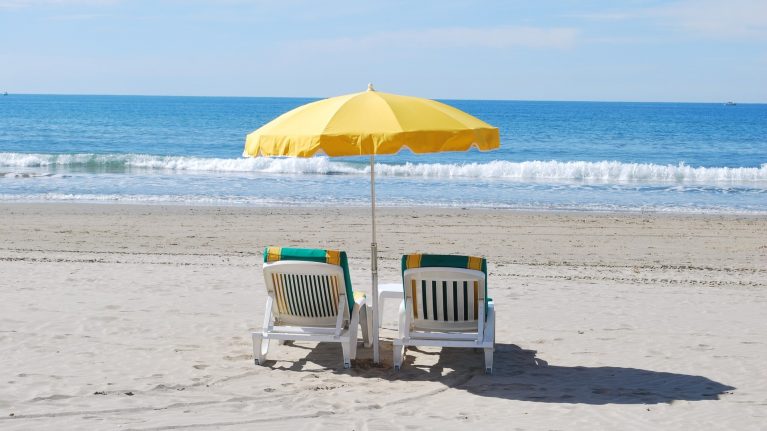Causes & Management of Constipation in Elderly People

Constipation in elderly people is a widespread condition as it develops much more often in older age. Experts estimate that two-thirds of people over 65 experience constipation. Though occasional constipation can come and go without severe consequences at any age, chronic constipation requires medical attention to discover its causes so that it can be managed and prevented from repeatedly occurring in the future.
Read on to discover more about the signs and symptoms of constipation, the complications that may arise from it, and all the potential causes and types of constipation, as well as its diagnosis, treatment, and prevention.
Causes of Constipation
Numerous issues can cause chronic constipation—from those that make the stool move too slowly to those that prevent it from being eliminated effectively, leading to hard and dry stool. Here are all the potential chronic constipation causes:
- Blockages in the colon or rectum: These can include anal fissures, bowel obstructions, narrowing of the colon (stricture), the rectum bulging through the back wall of the vagina (rectocele), and finally colon cancer, rectal cancer, and other abdominal cancers that press on the colon.
- Issues with nerves that cause muscles in the colon and rectum to contract: The causes of constipation in seniors among these types of conditions can include a stroke, spinal cord injury, Parkinson’s disease, autonomic neuropathy, and multiple sclerosis.
- Problems with the muscles involved in stool elimination: They are also causes of chronic constipation and can be brought on by anismus (the inability to relax the pelvic muscles, which allows a bowel movement), dyssynergia (the lack of coordination between pelvic muscles in providing proper relaxation and contraction), and weakened pelvic muscles.
- Conditions that affect hormones: Causes of severe constipation include conditions that lead to an imbalance of hormones that control the amount of fluid in the body like diabetes, hyperparathyroidism, hypothyroidism, and even pregnancy.
Types of Constipation in Elderly People
There are three main types of constipation in the elderly:
- Normal transit constipation: The most common type, in which the stool passes at a regular rate, but patients have trouble evacuating the stool. It is commonly associated with irritable bowel syndrome (IBS). However, IBS patients experience a lot more abdominal pain and discomfort.
- Slow-transit constipation: This type is more common in women. Bowel movements are slow and infrequent, there’s little urgency, and patients strain to defecate, leading to various elderly constipation complications.
- Dysfunction of the pelvic floor: Some elements of slow transit are present here as well. Patients have trouble coordinating muscles during defecation, and they have a feeling of incomplete evacuation. There are also problems with the pelvic floor muscles and around the anus (issues with the anal sphincter).
Signs and Symptoms of Constipation in the Elderly
The individual has to experience at least two of the symptoms from the list below to diagnose constipation. The first one, obviously, is infrequent defecation, accompanied by:
- hard and lumpy stool
- straining during defecation
- the sense of incomplete evacuation
- the need to “help” the stool come out
A quick way to assess if your stool is normal is to look at the Bristol stool scale. It can reveal mild or severe constipation in elderly people and even show whether they lack fiber in their diet.
Other associated signs and symptoms can include:
- irritability
- bloating
- pain in the abdomen
- feeling of fullness
- lack of appetite
Constipation in Elderly People and the Coronavirus
Constipation isn’t one of the typical COVID-19 symptoms, though some coronavirus patients can experience it. Some of the causes for this include:
- dietary changes
- medications used to treat COVID-19
- Lack of physical activity due to lockdowns (“quarantine constipation”)
- COVID-19-related stress and anxiety
As we said, some medication causes constipation, too. Some of the medications causing constipation as a side effect are famotidine, bevacizumab, and remdesivir. One study shows that 14% of people treated with remdesivir experience constipation.
Moreover, increased anxiety or stress can cause constipation and even raise it in people with IBS. In fact, a March 2021 study found that approximately 44% of people with IBS and anxiety or depression reported an increase in constipation.
Risk Factors for Constipation
Knowing the risk factors responsible for constipation in older adults is as important as knowing the specific causes. The first two of the following risk factors are clearly unmodifiable. But you can make changes to the others to decrease your risk of becoming constipated:
- being older than 65
- being female
- experiencing dehydration
- not getting enough dietary fiber
- physical inactivity
- having mental health issues like depression or an eating disorder
- taking medications that cause constipation in the elderly (certain sedatives, antihistamines, muscle relaxants, anti-nausea medications, narcotics, antidepressants, diuretics, and calcium and iron supplements)
Complications of Chronic Constipation in the Elderly
If left untreated for a long time, constipation can lead to several complications, including:
- Fecal impaction (stool that can’t be evacuated): The longer it stays in the colon, the drier and harder the stool gets. Eventually, it gets stuck and becomes impossible to evacuate without treatment.
- Hemorrhoids (swollen veins around the anus): Long-term straining during defecation can lead to hemorrhoids, which can also further become complicated by bleeding.
- Anal fissures (tears in the skin of the anus): Large and hard stools can even lead to tears in the anus.
- Rectal prolapse (intestines protruding through the anus): One of the most severe complications can occur when the rectum protrudes outside due to straining.
Diagnosing Constipation
Your doctor will diagnose constipation based on your symptoms and a physical exam that typically includes a digital rectal exam. To confirm or exclude any specific issues that could be causing your chronic constipation, your doctor might order various additional procedures such as:
- blood tests to discover certain conditions causing dehydration and constipation in the elderly, for instance, low thyroid function (hypothyroidism)
- sigmoidoscopy and/or colonoscopy to examine the rectum and lower (sigmoid) colon or the entire colon
- anorectal manometry and/or balloon expulsion test to evaluate the function and speed of the anal sphincter muscle
- X-ray and MRI defecography to see problems in the rectum during defecation
- colonic transit study to determine how well and how fast food moves through the colon
Treatment for Constipation in Elderly People
Managing constipation in the elderly is crucial. To begin treating chronic constipation, your doctor should first diagnose all underlying conditions that cause it and treat them properly. They should also revise all medications to identify and find substitutes for those causing constipation, if possible. Then, you can implement other lifestyle changes, drugs, procedures, and home remedies for constipation in elderly people.
Diet and Lifestyle Changes
There are a few things you can do to alleviate constipation, including:
- Drinking enough fluids: Making sure to drink plenty of fluids to avoid dehydration is one of the key things in preventing your stool from becoming dry and hard.
- Increasing fiber intake: Eating foods rich in fiber is another sure way of preventing constipation in elderly people. Fiber increases the overall weight of your stool and also speeds its passage through your intestines.
- Being physically active every day: Exercise is beneficial, as it increases the muscle activity in your intestines, speeding up the passage of stool.
- Not ignoring bowel movements: Never ignore the urge to have a bowel movement. Avoiding defecation makes the stool drier and harder, leading to geriatric constipation.
- Creating a schedule for bowel movements: Having and maintaining a regular bowel movement schedule—for example, in the morning or after meals—is an excellent way to avoid becoming constipated.
Laxatives
If the above lifestyle changes and a proper diet for constipation in elderly patients aren’t effective enough in eliminating your constipation, you should resort to some of the different types of laxatives. Here are all the available laxatives we have at our disposal, either over-the-counter or by prescription:
- Fiber supplements: Just like natural fiber, these supplements are designed to add bulk to your stool. Some of the fiber supplements available on the market include psyllium (Metamucil), calcium polycarbophil (FiberCon), and methylcellulose fiber (Citrucel).
- Osmotics: This type of laxative helps fluids move through the bowels. Drugs from this group include magnesium hydroxide (Magnesia), magnesium citrate, lactulose (Kristalose), polyethylene glycol (Miralax), polyethylene glycol (Golytely).
- Stimulants: These laxatives stimulate the contraction of the intestines, thus helping with the management of constipation. Examples include Dulcolax, senna-sennosides (Senokot), Correctol, bisacodyl (Ducodyl).
- Lubricants: Mineral oil-based lubricants enable easier movement of the stool through the colon.
- Stool softeners: This last type of oral laxative works by drawing water from the intestines to the stool. Some of them include docusate sodium (Colace) and docusate calcium (Surfak). However, experts doubt the effectiveness of stool softeners.
- Enemas and suppositories: You may occasionally need suppositories and enemas to produce a bowel movement. But you shouldn’t become too dependent on them and ignore addressing the constipation causes. Sodium phosphate (Fleet), soapsuds, and tap water can be used in enemas, while glycerin or bisacodyl suppositories are most commonly used to produce a bowel movement.
Pelvic Muscle Training and Surgery
If you have issues with your pelvic muscles, biofeedback therapists can help you learn how to relax or tighten them. They use special devices such as tubes that measure muscle tension in your rectum. In the case of blockage, rectocele, anal fissures, hemorrhoids, or stricture, surgery might be the only treatment option. Rarely, parts of the rectum or colon need to be removed if cancerous tumors were identified as the causes of constipation.
How to Prevent Constipation in the Elderly
The same diet and lifestyle changes used to treat constipation should be adopted to prevent constipation from ever occurring. So, you should drink plenty of fluids, eat lots of fiber-rich foods, avoid processed foods, be physically active, not ignore bowel movement urges, and try sticking to a schedule to prevent constipation.
But which foods are common causes of constipation, and which ones help prevent constipation? Have a good look at the table below, and learn what to avoid and what to include in your diet:
| Foods that cause constipation in seniors | Foods good for constipation in the elderly |
| Bananas | Prunes and plums |
| Caffeine | Apples and pears |
| Foods rich in gluten | Kiwi |
| White rice | Figs |
| Red meat | Citrus fruits |
| White bread | Spinach and other greens |
| Alcohol | Jerusalem artichoke and chicory |
| Chocolate | Artichoke |
| Dairy products | Rhubarb |
| Fast food | Sweet potatoes |
| Processed foods and frozen dinners | Beans, peas, and lentils |
| Chips | Flaxseeds and chia seeds |
| Some supplements | Whole grain bread and oat bran |
| Persimmon | Nuts and seeds |
| Chewing gum | Popcorn |
Conclusion
Many people think they are constipated if they don’t have a bowel movement every day. However, constipation is most often defined as having fewer than three bowel movements a week. Furthermore, chronic constipation in elderly people manifests as infrequent bowel movements or difficult passage of stool that lasts for at least several weeks.
While we can usually identify an underlying cause, there are instances when we can’t determine what causes an older adult to be constipated. Fortunately, there are ways to prevent and treat constipation even when we can’t determine what caused it.
FAQs
What causes constipation in the elderly?
The most common constipation causes in old age can be classified as those resulting from a blockage in the colon or rectum, problems with the pelvic nerves or muscles, and conditions that affect hormones that control the amount of fluid in the body. Additionally, many risk factors also contribute to constipation, like dehydration, lack of dietary fiber, physical inactivity, depression, eating disorders, and certain medications.
Do people get more constipated as they get older?
Yes, older adults, especially females over the age of 65, are more prone to constipation. In fact, over 65% of people over 65 experience chronic constipation. Experts can’t tell with certainty what causes this, but the reason might be the changes in metabolism that occur with aging. Or it might be due to dehydration, which is also a common problem in the elderly.
What is the best treatment for chronic constipation?
The best treatment approach to chronic constipation affecting older adults is diet and lifestyle changes before resolving to medications. If that doesn’t help, the next step is taking a laxative. Additionally, enemas, suppositories, pelvic muscle training, and surgery may be required, depending on the cause of constipation.
What helps constipation fast?
If a spontaneous bowel movement can’t be produced even with extensive straining, fecal impaction might be the culprit. In those cases, enemas and suppositories have to be used to evacuate the stool. However, you shouldn’t take shortcuts and wait that long before addressing your chronic constipation. It’s much better to avoid having to treat chronic constipation constantly.
How can you avoid getting constipated?
You can successfully avoid getting constipated by fighting dehydration, eating foods rich in fiber, exercising daily, and not ignoring the urge to have a bowel movement.
How does constipation affect the elderly?
As we get older, our metabolism slows naturally, and it may cause a lot of discomfort and anxiety. Untreated constipation from bowel problems in the elderly may end in severe health issues. Those issues include fecal impaction, bowel incontinence, and anal fissures.
What foods make you constipated?
The foods and drinks that increase your risk of becoming constipated include bananas, caffeine, gluten, white rice, red meat, white bread, alcohol, chocolate, dairy products, fast and processed foods, chips, specific supplements, persimmon, and even chewing gum if you accidentally swallow it too often.
What foods are good for constipation?
On the other hand, to increase your fiber intake and decrease your risk of becoming constipated, you should often eat prunes and plums, apples and pears, kiwi, figs, citrus fruits, spinach and other greens, Jerusalem artichoke and chicory, artichoke, rhubarb, sweet potatoes, beans, peas, lentils, flaxseeds and chia seeds, whole grain bread and oat bran, nuts and seeds, and, yes, popcorn, which also helps fight constipation in elderly people.






